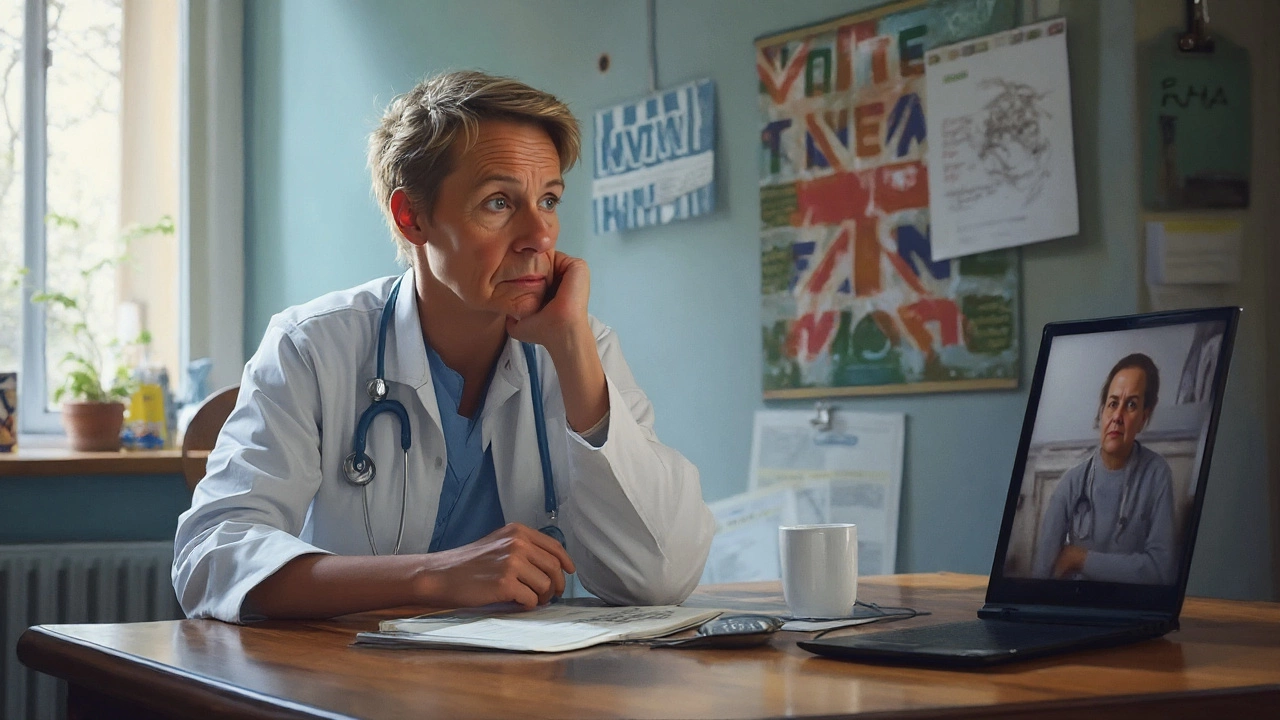Telemedicine UK – Your Quick Guide to Online Health Care
If you’ve ever wondered how to see a doctor without leaving home, you’re in the right place. Telemedicine lets you have a video call, chat, or phone consult with a medical professional. In the UK it’s growing fast, thanks to faster internet, the NHS embracing video appointments and private services offering 24/7 access.
What Telemedicine Actually Means
At its core, telemedicine is just a remote medical visit. Instead of sitting in a waiting room, you use a smartphone, tablet or computer to talk to a qualified practitioner. Most sessions cover routine checks, prescription renewals, minor injuries, mental‑health talks and follow‑up appointments after surgery. You’ll get a digital summary, a prescription sent to your pharmacy, and advice on next steps – all without stepping outside.
Why Choose a Virtual Appointment?
Convenience is the biggest draw. No more travel time, parking hassles or missing work. For many, it also feels less stressful – you’re in a familiar space and can relax more. Costs can be lower too. NHS video appointments are free for most patients, and private providers often charge less than an in‑person visit because they don’t need a physical clinic for every case.
Telemedicine also helps people in rural areas where GP surgeries are far away. If you live in a village or have mobility issues, a video call can be a game‑changer. Plus, it speeds up access to specialists. Some private platforms let you book an orthopaedic consult within hours, something that might take weeks on the NHS.
How to Get Started
First, check if your GP offers video appointments. Many practices now have a simple link on their website or a button in the NHS app. If you prefer a private service, look for platforms that are registered with the Care Quality Commission (CQC) – that means they meet safety standards.
When you book, make sure you have a stable internet connection, a working camera and microphone, and a quiet space. Have any medication lists, recent test results or symptoms written down. This helps the clinician give accurate advice and avoids the need for a follow‑up call.
What You Can’t Do Over Video
Not every health issue can be handled remotely. If you need a physical exam, blood tests, X‑rays or urgent care, you’ll still need to go in‑person. Most doctors will let you know quickly if they can’t diagnose you online and will arrange a face‑to‑face visit.
Also, be careful with scams. Legitimate services will never ask for cash upfront or ask you to download unknown apps. Stick to providers that list clear pricing, have a visible privacy policy and offer a way to contact them by phone.
Tips for a Smooth Telemedicine Experience
- Test your tech 5 minutes before the appointment.
- Choose a well‑lit spot so the clinician can see you clearly.
- Speak clearly and keep a pen handy for notes.
- If you’re prescribed medication, ask how to get it from a local pharmacy.
- Follow up with any lab tests or referrals the doctor mentions.
Telemedicine is here to stay, and the UK is leading the way with both public and private options. Whether you need a quick prescription refill, a mental‑health check‑in, or a specialist opinion, a video call can save you time, money and stress. Give it a try – you might be surprised how easy good health can feel from your own couch.

Can Online Doctors Prescribe Hydrocodone? UK Telemedicine Laws and Practical Tips
Curious if online doctors in the UK can prescribe hydrocodone? Find out how legal rules, risks, and telemedicine shape access and safety in this must-read guide.
Categories: Online Doctor Consultation
0
